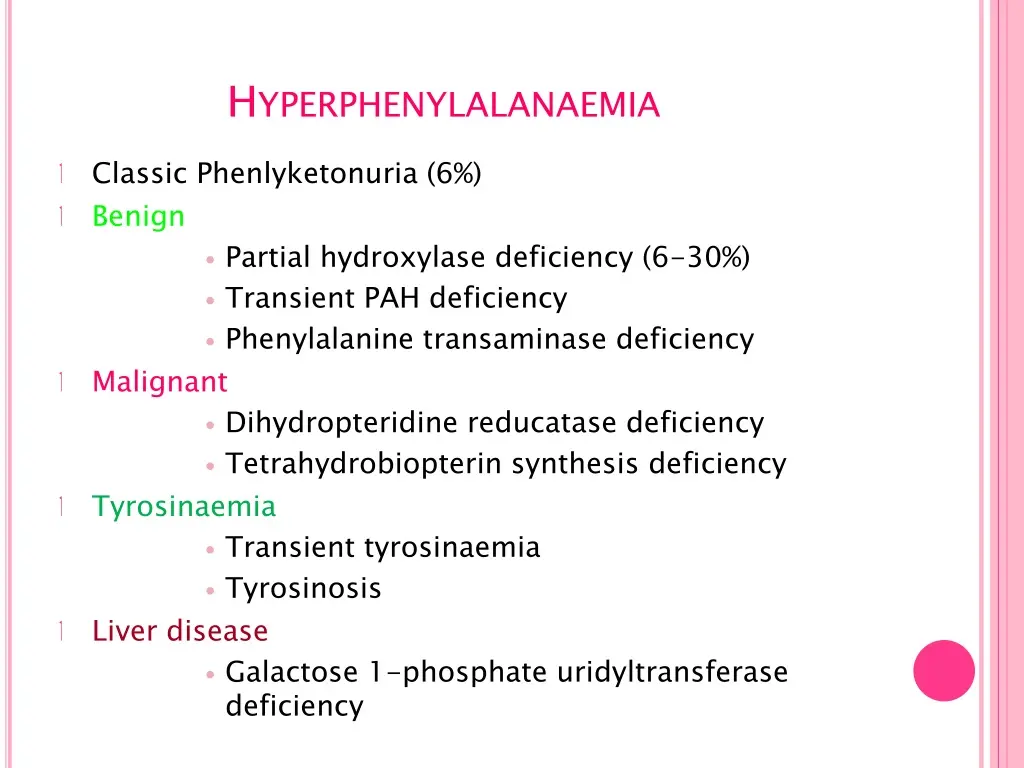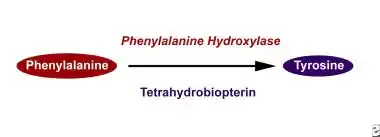Can Hyperphenylalaninemia be Cured?
No
Lifelong management involves strict adherence to the phenylalanine-restricted diet; early and consistent treatment can prevent or reduce symptoms, but there is no cure

What is Hyperphenylalaninemia?
Hyperphenylalaninemia is a genetic disorder characterized by elevated levels of phenylalanine in the blood. If left untreated, it can lead to intellectual disability. Management involves a special diet low in phenylalanine, and early detection through newborn screening is crucial for effective intervention.

Clinical Aspects

Characteristics
Inherited metabolic disorder characterized by elevated levels of phenylalanine in the blood, often due to a deficiency of the enzyme phenylalanine hydroxylase

Symptoms
Intellectual disability, seizures, developmental delays, behavioral problems

Diagnosis
Blood tests, genetic testing

Prognosis
Variable, depends on early intervention

Complications
Intellectual disability, developmental issues
Etiology and Treatment

Causes
Genetic mutations affecting the phenylalanine hydroxylase gene

Treatments
Phenylalanine-restricted diet, supplementation of certain nutrients, monitoring of blood phenylalanine levels

Prevention
Phenylalanine-restricted diet, supplementation of certain nutrients, monitoring of blood phenylalanine levels
Public Health and Patient Perspectives

Epidemiology
Genetic, often detected in newborn screening

Patient Perspectives
Lifelong management through dietary control
Remember, the information provided here is intended for general knowledge purposes and may not apply to every individual case. To ensure you have accurate information relevant to your specific situation, always consult with a healthcare professional.
Share: